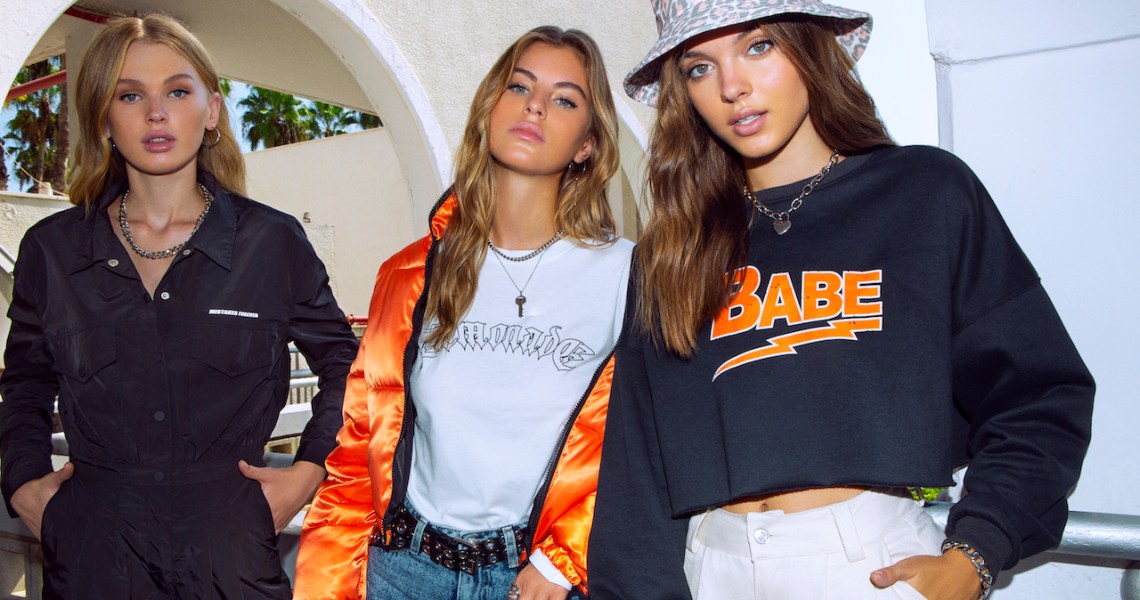After seeing success in Israel, fast-fashion e-commerce company Adika is determined to become the new go-to brand for Gen-Z women in the U.S.
This week, Adika opened a pop-up store in New York City, with plans to eventually open similar spaces in Los Angeles and Austin. The U.S. expansion comes at an interesting time: Many fast-fashion companies have hit hard times in the U.S. as younger consumers are buying from more sustainable, cause-driven companies. Adika CEO Dedy Schwartzberg believes the company’s ability to turn the hottest trends around quickly and its approach to influencer marketing, using micro-influencers and not mega-celebrities, will help the company succeed here.
“We are not going after all the girls in the world. We are very focused on a specific, trend-driven girl. We call ourselves the sexy sister of Brandy Melville,” said Schwartzberg.
In August, Forever 21 filed for bankruptcy tied to a major decline in sales. Then there are Charlotte Russe and Topshop, which have faltered in the U.S. H&M is also struggling. But there are outliers who have found success. For example, U.K.-based Boohoo Group has seen growth in the U.S. in recent quarters.
Adika’s shift into the U.S. comes two years after Schwartzberg took the company public in Israel. In 2017, the company sold 1 million items. The following year it sold 1.8 million. Seven months ago, Adika went global via its e-commerce site, shipping and selling in markets across Europe, as well as the U.S. Currently, the company has eight permanent retail locations in Israel. In the second quarter of 2019, it made over $30 million in revenue.
One of the company’s biggest selling points, per Schwartzberg, is that 90% of its product is trend-driven. The company scours Instagram for what the latest trends influencers like Gigi Hadid are wearing. Within four weeks of identifying a trend, Adika has a replica of that trend to sell online. When something popular sells out, it takes the team approximately two weeks to restock that item. Most products range from $20-$65, with a handful of items priced at around $100.
While Adika believes its focus on trendy items will be a key to success, Mark Burstein, president of NGC, said the focus on of-the-moment items has hurt other fast-fashion companies like H&M and Forever 21 in the past. There has also been backlash from consumers around cheap fashion designed to be worn a handful of times and then thrown away. As a result, brands like H&M and Zara are heavily pushing their sustainability goals and plans to keep customers engaged.
“You can produce 1,000 units of a fashionable item in two weeks. You cannot produce 100,000 units of a fashionable item in two weeks. As you started seeing these companies grow, like H&M and Forever 21, they would start going more toward the basic items that had a longer lifespan on the shelf, rather than a dress people saw on the red carpet,” Burstein said.
Pop-up shops will be a crucial part of the company’s launch in the U.S But being an online-focused company will be key to its success, Schwartzberg said. Where Forever21 and Topshop had retail locations to worry about (and pay for), Adika will focus its energy on e-commerce. The pop-up shops serve more as “billboards” for the company as it enters new U.S. cities.
“A lot of people are walking by and seeing the brand, and what happens is people start visiting the website and shopping online. We’ve noticed that in the last week since opening the NYC pop-up,” he said.
Adika is also using those pop-ups to push Instagram advertising to new customers. It’s using geofencing advertising on Instagram, pushing paid ads to women between the ages of 15-25 who are near the Adika pop-up and offering them 30% off their first purchases to drive sales to the pop-up or online.
Nearly all of Adika’s marketing is focused on Instagram, although the brand did not break out its specific marketing mix. Seventy-six percent of orders come from mobile, and 85% of site traffic is driven through mobile, so focusing on Instagram marketing is key for the company. In Israel, one out of four Gen-Z women follows the company on Instagram, Schwartzberg said. Its Instagram has 440,000 total followers.




